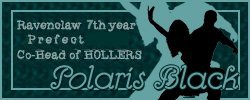I am a technical writer, trained to be concise and effective. For me, Drabble Babbles are fun and writing precisely 100 words is an irresistible challenge.
But when I am presented with a homework option that is 300 words minimum, I become a Graphophobe, having "an exaggerated or irrational dislike of writing". I dread having to work with a word counter, just to ensure that I meet the minimum number of words. And of course, I'm always unhappy with the results. So I will always choose another option if I have the chance.
I tried to overcome the fear by participating in a month long roleplay activity, which helped a little but points weren't involved.
Any suggestions?
Graphophobia
Moderator: Book Club Heads
-
Prof. Polaris Black
- Comet 140
- Posts: 923
- Joined: Thu Sep 26, 2013 1:52 am
Graphophobia

A "Cassie Sig" is priceless - thank you so much!
-
Reggy Faraday
- No broom
- Posts: 26
- Joined: Fri Jun 17, 2016 8:07 pm
- Location: Texas, USA
Re: Graphophobia
I have a similar kind of experience, since I primarily write short stories that pretty short, even by that convention. I also hated longer essays in school.
Usually, I come at longer assignments with the idea of expansion. Like, I'll write some key points on a sticky note, and then draft out the things I have to say about those things. From that draft, I can begin to see what could use more explanation, or what questions come up from what I've written that I could address. Sometimes I'd worry about redundancy or needlessly over-explaining things, but most of the time, it's not really needless. I think it's good to help your reader keep in step with your thinking, especially since they're not there in your head with you! It might only feel redundant to you because you knew what you were going to write going into the project.
I do the same sort of thing for my fiction, also. Probing for places to expand, asking what questions are raised by the actions/characters/settings so far, examining what's working well and what isn't so I can shift my focus to aspects that might need more attention.
This method can be hijacked by my internal editor, though, making me second-guess and churn through the same bite-size material over and over. At that point I give myself a new thing to go after (a question I asked of my work, a part of the work I haven't talked a lot about) and do another word-burst focused on that. Eventually, those word-bursts add up, even if they're not smoothly connected. And it's way easier to edit words that are there than words that aren't!
Everyone's writing process is a little different, but I hope this helps some!
Usually, I come at longer assignments with the idea of expansion. Like, I'll write some key points on a sticky note, and then draft out the things I have to say about those things. From that draft, I can begin to see what could use more explanation, or what questions come up from what I've written that I could address. Sometimes I'd worry about redundancy or needlessly over-explaining things, but most of the time, it's not really needless. I think it's good to help your reader keep in step with your thinking, especially since they're not there in your head with you! It might only feel redundant to you because you knew what you were going to write going into the project.
I do the same sort of thing for my fiction, also. Probing for places to expand, asking what questions are raised by the actions/characters/settings so far, examining what's working well and what isn't so I can shift my focus to aspects that might need more attention.
This method can be hijacked by my internal editor, though, making me second-guess and churn through the same bite-size material over and over. At that point I give myself a new thing to go after (a question I asked of my work, a part of the work I haven't talked a lot about) and do another word-burst focused on that. Eventually, those word-bursts add up, even if they're not smoothly connected. And it's way easier to edit words that are there than words that aren't!
Everyone's writing process is a little different, but I hope this helps some!
-
Prof. Tarma Amelia Black
- Warp 10000
- Posts: 7882
- Joined: Sun Dec 14, 2003 6:31 am
Re: Graphophobia
Somewhat like Reggy says, map out the key things about which you want to write. Then fill in those areas with words.
Another thing is to pretend you are talking with someone. A person often uses different words speaking as compared to writing and quite often will use more words. So write what you would be saying to someone about your subject. Just write it, don't worry about grammar or correctness of sentences. Then go through it and correct the grammar and sentences. Odds are that you'll have more words than if you had just written it as a homework assignment -- and perhaps have a slightly different viewpoint too, depending upon whom you pretended to be speaking.
Another thing is to pretend you are talking with someone. A person often uses different words speaking as compared to writing and quite often will use more words. So write what you would be saying to someone about your subject. Just write it, don't worry about grammar or correctness of sentences. Then go through it and correct the grammar and sentences. Odds are that you'll have more words than if you had just written it as a homework assignment -- and perhaps have a slightly different viewpoint too, depending upon whom you pretended to be speaking.

